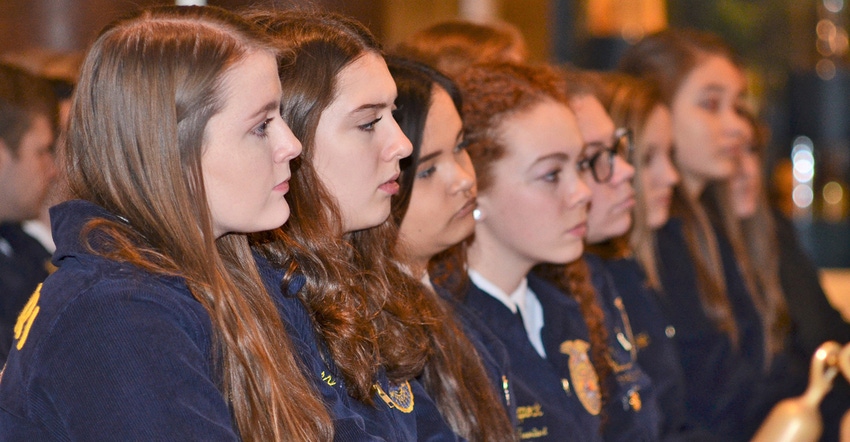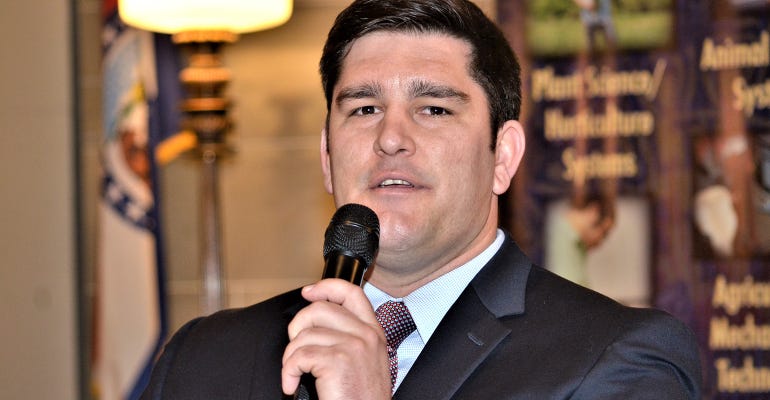
What will it take for youth involved in agriculture to truly shape the future of the ag industry?
That was the question posed to Daniel Carpenter, a young farmer from Norborne, Mo., who was taking part in a Workforce Readiness Roundtable event during National FFA Week.
Carpenter works alongside his dad and two younger brothers on a cow-calf and row crop operation. He shared with a group of 80 FFA members gathered in the Missouri State Capitol Rotunda that soft skills such as leadership, along with hard skills such as mechanics, will be needed to move the agriculture industry forward.

CHALLENGING CHOICES: Daniel Carpenter is a young farmer from north central Missouri. He is part of the Agricultural Leadership of Tomorrow program, or ALOT. Carpenter spoke to a group of FFA members from eight schools about how they can shape the future of the agriculture industry.

Carpenter offered three ways for students to lay the groundwork now for creating ag’s future:
Step out of your comfort zone. “When going to contest this spring, sit down and eat lunch with someone not from your school,” he said. “You guys likely go to the same contest with some of the same schools from across your region, and you may even know some of the people.” But he urged students to meet other FFA members and get to know them. It is these early connections that provide future contacts.
Be versatile. “How many know exactly what you are going to be and do in 20 years?” Carpenter asked. “I didn’t know it either when I was in high school, but I am sitting in front of you today because I have learned to become versatile.” He said students should develop skills that are adaptable across the ag industry, such as leadership and communication skills. Only then, he said, will students be in position to take full advantage of opportunities when they come before them.
Find a mentor. “Whether it be your father, older brother, grandpa or close family friend, find someone you can talk to, learn from,” Carpenter said. Skills such as working on automobiles, changing a tire or changing your oil often are honed with a hands-on approach. Students should find individuals willing to teach and then be willing to listen and invest the time to learn. Carpenter added that while small skills often are not touted, they go a long way in the ag industry.
Above all, Carpenter said that the next generation of agriculture should remain humble and competent. “More people look at humility and competency more than anything when they are looking to help a young person,” he said. Success often comes down to attitude and aptitude.
His final advice, “Seize opportunities when they come your way.” That is how the next generation ultimately will shape the future of farming and ranching.
About the Author(s)
You May Also Like






